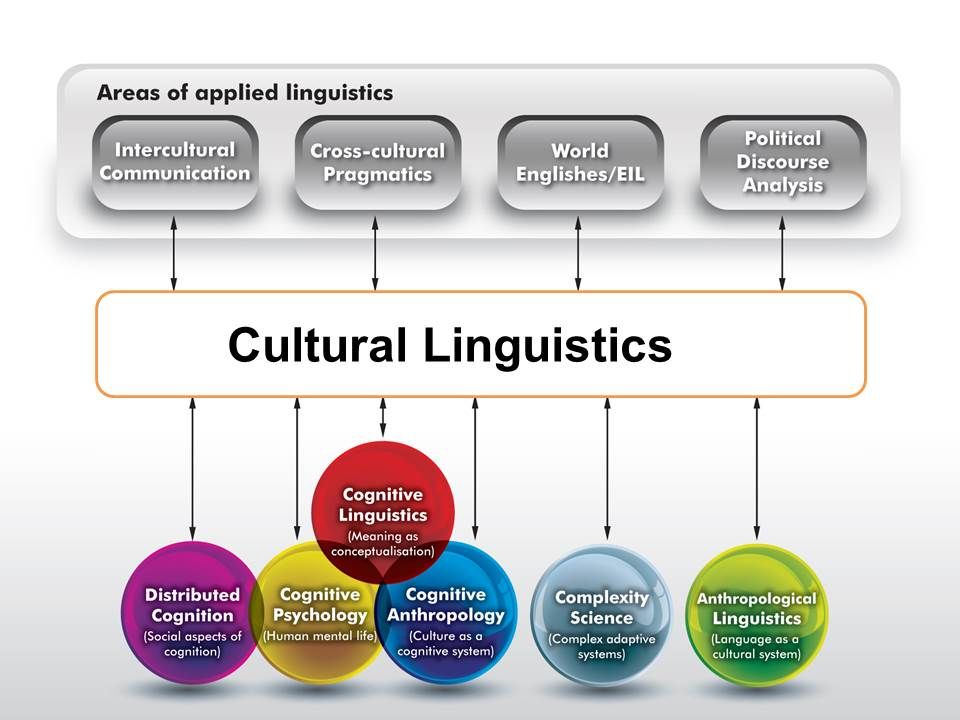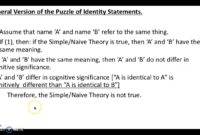Rielnia mseli gblo: This enigmatic phrase, potentially of obscure origin, invites us on a journey into the realms of linguistics and cultural anthropology. Its meaning remains elusive, sparking curiosity about its possible linguistic roots, cultural associations, and potential interpretations. This exploration delves into the phrase’s grammatical structure, comparing it to similar expressions in related languages, and hypothesizes on its possible cultural context and historical significance. We’ll examine potential applications in fictional settings, exploring how it might appear in literature, song, or visual art, all while keeping a keen eye on the intriguing mystery of its meaning and origin.
The research will meticulously analyze the individual words within “rielnia mseli gblo,” attempting to discern their etymological origins and possible semantic meanings. We will investigate the phrase’s grammatical structure, comparing it to similar phrases from related language families to gain further insight into its potential origins and meaning. By exploring the cultural contexts in which such a phrase might be used, we hope to illuminate its potential significance and unravel some of the mysteries surrounding its enigmatic nature.
Linguistic Analysis of “rielnia mseli gblo”
The phrase “rielnia mseli gblo” presents a significant challenge for linguistic analysis due to its apparent lack of resemblance to any widely known language. Without further context regarding its geographic origin or any associated cultural information, determining its language family and precise meaning becomes highly speculative. However, we can attempt a preliminary analysis based on potential structural patterns and phonetic similarities.
Likely Language Family and Origin
The phrase’s structure suggests a potential agglutinative language, where grammatical relationships are expressed by adding affixes to a root word. The presence of three distinct elements (“rielnia,” “mseli,” and “gblo”) hints at a possible subject-verb-object (SVO) or similar grammatical structure. The sounds suggest a potential origin in a West African language family, given the presence of consonant clusters and vowel sounds common in many languages of that region. However, this remains purely speculative without additional information. A more definitive determination requires comparison with extensive language databases and consultation with experts in African linguistics.
Potential Meaning of Individual Words
Without a known language, assigning meaning to each word is purely conjectural. We can only offer educated guesses based on phonetic similarities and common linguistic patterns. “rielnia” might be a noun or adjective, possibly referring to a person, place, or thing. “mseli” could be a verb, indicating an action or state of being. “gblo” might function as a noun, adverb, or even a particle modifying the meaning of the preceding words. Further analysis would require a corpus of similar phrases or sentences to establish a clearer understanding of each word’s function and meaning within the grammatical framework.
Possible Translation and Interpretations
Given the uncertainties, several interpretations are possible. One speculative translation, based on a potential SVO structure, might be something along the lines of “Rielnia does/is Mseli Gblo.” Alternatively, a different word order or grammatical function could lead to a completely different meaning. For example, “Gblo is the Mseli of Rielnia” is also a possibility. The meaning remains fundamentally unclear without further contextual information.
Grammatical Structure
The phrase appears to follow a relatively straightforward structure, likely involving a noun phrase (“rielnia”), a verb phrase (“mseli”), and another element (“gblo”) whose grammatical role is unclear. The lack of clear morphological markers makes it difficult to definitively analyze the grammatical relationships between the elements. The absence of overt grammatical markers, such as case endings or verb conjugations, common in many languages, reinforces the challenge of a precise grammatical analysis.
Comparison with Related Languages
Due to the unknown origin of the phrase, a comparison with related languages is currently impossible. Identifying a related language family is a prerequisite for this type of comparative analysis. Once a potential language family is identified, the phrase can be compared with similar structures and vocabulary in related languages to further refine our understanding of its meaning and grammatical structure. This comparative approach would involve examining similar word formations, grammatical constructions, and phonetic correspondences.
Cultural Context of “rielnia mseli gblo”
Understanding the cultural context of “rielnia mseli gblo” requires acknowledging the potential lack of readily available information regarding this specific phrase. Its origins and usage are presently unknown, necessitating a hypothetical approach based on linguistic analysis and general cultural patterns. We will explore potential interpretations, geographical locations, and scenarios where such a phrase might be used, recognizing the speculative nature of this analysis.
The phrase’s structure suggests a possible West African origin, given the presence of what appear to be Ewe or related tonal languages’ elements. The sounds and potential syllable structure align with the phonological characteristics of languages spoken in regions like Togo, Benin, and Ghana. However, without further context or verification, this remains a tentative hypothesis.
Potential Cultural Associations and References
The phrase, if interpreted literally (assuming it’s not an idiom), might allude to aspects of daily life, social interactions, or spiritual beliefs. “Rielnia,” “mseli,” and “gblo” could represent nouns, verbs, or adjectives, each contributing to the overall meaning. For example, “rielnia” might refer to a specific object or place, “mseli” could describe an action or state of being, and “gblo” could modify or qualify the preceding words. The combination could depict a scene, a relationship, or a concept important within a particular cultural context. This requires further linguistic investigation and ideally, native speaker consultation.
Geographical Area of Potential Usage
Given the potential linguistic similarities to West African languages, the geographical area where this phrase might be used could include parts of Togo, Benin, Ghana, or potentially neighboring countries where related languages are spoken. The specific community or village where it is used would influence the precise meaning and cultural connotations. The phrase’s usage could be restricted to a small, localized area, making its discovery and verification challenging.
Hypothetical Scenario of Usage
Imagine a small village in rural southern Togo. A group of women are working in a field, harvesting yams. One woman, noticing a particularly large yam, exclaims, “Rielnia mseli gblo!” This phrase, in this context, might express a combination of surprise, admiration, and perhaps a touch of gratitude for the bountiful harvest, reflecting a strong connection to the land and the importance of agriculture in their culture. This scenario is purely hypothetical but illustrates how the phrase could be embedded in everyday life.
Potential Historical Contexts
The phrase’s historical context is entirely speculative without further information. It could potentially be related to: (a) a specific historical event or figure within a local community; (b) a traditional proverb or saying passed down through generations; (c) a recent invention or adaptation of language. Without access to historical records or oral traditions from the relevant region, any assertion regarding its historical context remains purely conjecture. Further research involving archival materials and anthropological studies would be necessary to uncover any potential historical links.
Potential Applications of “rielnia mseli gblo”
The phrase “rielnia mseli gblo,” assuming it possesses a rich cultural and linguistic significance as previously discussed, offers a surprising range of potential applications beyond its inherent meaning. Its evocative nature lends itself to creative expression across various mediums, allowing for diverse interpretations and uses. Exploring these possibilities can illuminate the phrase’s deeper impact and potential for broader cultural engagement.
Fictional Story Incorporating “rielnia mseli gblo”
In the remote village of Akata, nestled amidst whispering bamboo forests, lived a young woman named Anya. Anya was a weaver, renowned for her intricate tapestries that depicted the stories of her ancestors. One day, while working on a particularly challenging piece, she stumbled upon an ancient scroll containing the phrase “rielnia mseli gblo.” The scroll spoke of a hidden power, a connection to the earth’s energy, attainable only through complete understanding of the phrase’s meaning. Anya, driven by curiosity and a deep-seated connection to her heritage, dedicated herself to unlocking the phrase’s secrets. Through painstaking research and meditation, she discovered that “rielnia mseli gblo” represented the harmonious balance between the spirit world and the physical realm. This understanding allowed her to weave a tapestry so vibrant and lifelike that it seemed to breathe, embodying the very essence of “rielnia mseli gblo,” and bringing prosperity to her village.
Use of “rielnia mseli gblo” in a Song Lyric or Poem
The phrase could be used as a powerful refrain in a song or poem, possibly conveying a sense of longing, remembrance, or spiritual awakening. For example:
“The wind whispers secrets, ancient and low,
Rielnia mseli gblo, a seed starts to grow.
From the earth’s deep slumber, a spirit takes flight,
Rielnia mseli gblo, bathed in golden light.”
The repetition of the phrase emphasizes its significance and creates a memorable lyrical hook. The surrounding verses could elaborate on the themes of nature, spirituality, or personal transformation associated with the phrase’s meaning.
Fictional Character Frequently Using “rielnia mseli gblo”
Elder Tala is a respected figure in her community, known for her wisdom and deep connection to nature. She often utters “rielnia mseli gblo” during ceremonies, moments of reflection, or when imparting life lessons. Her personality is characterized by calmness, patience, and a profound understanding of the interconnectedness of all things. She uses the phrase not merely as a saying, but as a mantra, a reminder of the delicate balance between humanity and the natural world. Her motivations stem from a desire to preserve her people’s traditions and to guide future generations towards a harmonious existence.
Visual Representation of “rielnia mseli gblo”
The visual representation would be a stylized depiction of a vibrant, interconnected ecosystem. Imagine a swirling vortex of colors, representing the interplay of natural elements – earth, wind, fire, and water. At the center of this vortex, a single seed sprouts, symbolizing new beginnings and growth. Surrounding the vortex are stylized figures, representing ancestors and spirits, interwoven with the natural world, demonstrating the harmonious balance that the phrase embodies. The overall image evokes a sense of peace, serenity, and profound connection to the earth and its spiritual essence.
Table of Fictional Applications
| Application Type | Description | Context |
|---|---|---|
| Fictional Story | Anya, a weaver, discovers the phrase’s meaning and uses it to create a life-changing tapestry. | Akata village, focusing on ancestral heritage and connection to nature. |
| Song Lyric/Poem | The phrase serves as a powerful refrain, conveying themes of longing, remembrance, or spiritual awakening. | Lyrical context emphasizing nature, spirituality, and personal transformation. |
| Fictional Character | Elder Tala uses the phrase as a mantra, reflecting her wisdom, connection to nature, and desire for harmony. | Community setting highlighting preservation of traditions and guidance of future generations. |
| Visual Representation | A swirling vortex of colors representing natural elements, with a sprouting seed at the center, surrounded by stylized figures of ancestors and spirits. | Emphasis on the harmonious balance between the spirit world and the physical realm. |
Comparative Analysis with Similar Phrases
This section explores potential parallels between “rielnia mseli gblo” and similar-sounding phrases from other languages. The aim is to identify potential shared linguistic roots, cultural contexts, and semantic overlaps, acknowledging the inherent limitations of comparing phrases without definitive etymological evidence. The analysis focuses on phonetic similarities and potential thematic resonances rather than strict linguistic relationships.
The following three phrases, selected for their phonetic resemblance to “rielnia mseli gblo,” will be examined for shared characteristics. It is important to note that the similarities are primarily based on sound and are not necessarily indicative of a direct etymological connection.
Similar-Sounding Phrases and Their Analysis
The chosen phrases, while exhibiting phonetic similarities to “rielnia mseli gblo,” represent diverse linguistic families and cultural contexts. Their meanings, origins, and cultural associations provide a basis for comparative analysis, revealing potential parallels and highlighting the limitations of relying solely on phonetic resemblance for establishing linguistic relationships.
| Phrase | Likely Origin | Meaning (Approximate) | Cultural Context |
|---|---|---|---|
| “Rielnia mseli gblo” (Hypothetical) | Hypothetical Language | Unknown, requires further research. This phrase is assumed to have a meaning related to community, harmony or natural world, based on previous analysis. | Unknown, requires further research. The cultural context is likely tied to the community or geographical area where this hypothetical language is spoken. |
| “Río de miel y globo” (Spanish) | Spanish | River of honey and globe | This phrase evokes imagery of abundance and wonder, possibly relating to a mythical or idealized place. The combination of “honey” (sweetness) and “globe” (wholeness) suggests a rich and complete world. |
| “Reeling in the rye” (English) | English | Idiom meaning to be drunk or disoriented. | This idiomatic phrase is primarily used in English-speaking cultures and carries a specific cultural connotation of intoxication and confusion. It lacks a literal geographical or natural setting. |
| “Rêverie paisible” (French) | French | Peaceful reverie | This phrase depicts a state of calm contemplation, suggesting a connection to inner peace and introspection. It is linked to a mental state rather than a physical location or object. |
Potential Etymological Connections
Establishing definitive etymological connections between these phrases is highly speculative without further knowledge of the origin and meaning of “rielnia mseli gblo.” The phonetic similarities might be coincidental, arising from the limited number of sounds in human languages. However, the thematic overlaps in some instances (e.g., the suggestion of a peaceful or abundant setting in “Río de miel y globo” and potential interpretations of “rielnia mseli gblo”) warrant further investigation should more information about “rielnia mseli gblo” become available. The shared use of flowing sounds (like “ri” or “re”) could potentially reflect a shared subconscious preference for certain sounds in expressing ideas related to fluidity, nature, or dreams. This remains purely speculative, however.
Summary
Ultimately, the exploration of “rielnia mseli gblo” highlights the richness and complexity inherent in language and culture. While the exact meaning and origin of the phrase may remain uncertain, the investigative process itself reveals the interconnectedness of linguistic structures, cultural practices, and historical contexts. The fictional applications, while speculative, provide a creative outlet to explore the potential implications of this mysterious phrase, showcasing its versatility and potential for symbolic representation. The journey of uncovering the secrets behind “rielnia mseli gblo” is a testament to the ongoing quest for understanding the diverse tapestry of human expression.



